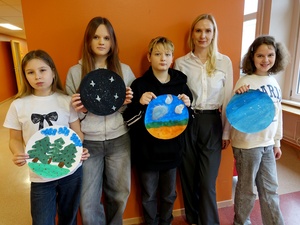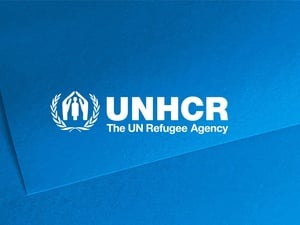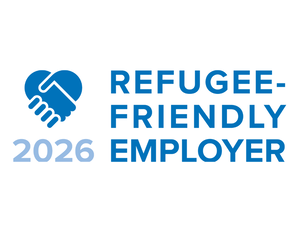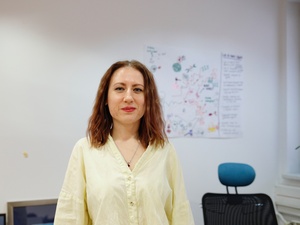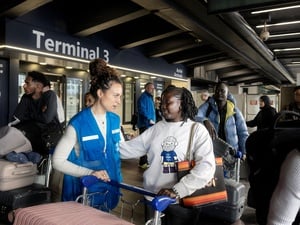New report: Socio-economic inclusion - good practices across Europe
New report: Socio-economic inclusion - good practices across Europe

UNHCR supported Ekaterina with cash assistance, which helped her cover essentials when she first arrived in Romania from Ukraine. She has since found work at a bookshop and shared working space in Bucharest.
In a new report, UNHCR, the UN Refugee Agency, highlights successful pilot initiatives and practical accomplishments of national authorities, NGOs, and RLOs across Europe, which hold the potential to be replicated on a larger scale. The report covers select practices promoting socio-economic inclusion, drawing on examples from the Czech Republic, Georgia, Poland, Republic of Moldova, Romania, and Slovakia.
The interventions highlighted illustrate UNHCR's efforts with national authorities, the private sector, NGOs and refugee-led organizations (RLOs) advancing opportunities for refugees to access rights and services and contribute to their host communities. The document draws on UNHCR's Regional Inclusion Strategy for the Ukraine Refugee Response, introduced in February 2023, which outlines tools and approaches to create an inclusive environment, aligned with socio-economic needs and temporary protection frameworks, and is comprised of five strategic objectives.
Reflecting on achievements and challenges, UNHCR advocates these reproducible interventions be employed through a whole-of-society model to drive socio-economic inclusion of all refugees by drawing on the good practices identified from the reception of refugees from Ukraine across Europe.
Key takeaways:
- Cross-sectoral partnerships: Collaboration across levels of governments, and with the private sector, NGOs, and RLOs, is essential to ensure effective progress on socioeconomic inclusion in the medium-term, and to the development of initiatives with far-reaching, transformative impact for both refugees and host communities in the long term.
- Challenges and opportunities: Although there are employment opportunities for refugees in Europe, challenges to decent work persist, including language barriers, recognition of professional qualifications, and care responsibilities.
- UNHCR’s promotion of successful models and practices: UNHCR promotes successful pilot initiatives and practical accomplishments of national authorities, NGOs, and RLOs across Europe, with potential to be replicated on a larger scale.


